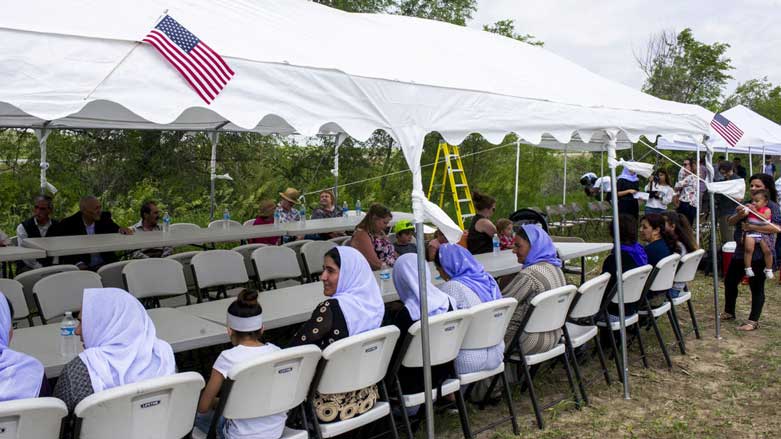Community plans to build first-ever Ezidi cemetery in the US

ERBIL, Kurdistan Region (Kurdistan24) – Hundreds of people on Saturday gathered in Malcolm, Nebraska for a ceremony celebrating the establishment of a site for the first-ever Yezidi (Ezidi) cemetery in the US.
The land was purchased by the United Ezidi Community of America for $150,500 in October 2016, the Lincoln Journal Star reported.
The 20-acre cemetery did not consist of much at the time, but the community plans to plant grass, erect statues, build a shrine, and a funeral home to hold gatherings.
The special occasion was honored by Baba Sheikh, the Ezidi religious leader in Iraq, who called in to offer prayers in Kurdish over a speaker.
“This is an important event for us and all our people here,” Taalo Khudhur, the local Ezidi elder who dialed Baba Sheikh for the event.
“It’s important to have land here where we can carry out our traditions in the United States,” he added.
The nonprofit’s website says Lincoln has the highest Ezidi population in the US.
Co-founder Khalaf Hesso says the cemetery is intended to be open to all Ezidis in the United States. He estimates as many as 2,500 Ezidi currently live there.
“This land is a God-chosen land for the [Ezidis],” said Hesso, who came to Nebraska with his family 22 years ago. It took them nearly two years to find a site.
The first Iraqi Ezidi families made their way to Nebraska in the 1980s after Saddam Hussein began slaughtering people by the thousands in a violent relocation campaign.
Before the Islamic State (IS) genocide of Ezidis in 2014, some would send the dead back to Iraq for burial on sacred land. It became increasingly difficult and dangerous due to the situation in Iraq.
Many of the Ezidi-populated areas have been destroyed, rigged with explosives, and remain at risk of conflict due to the presence of armed groups in the area such as the Kurdistan Workers’ Party (PKK) and the Hashd al-Shaabi.
With their homes destroyed, there is little left in Iraq to go back to except more persecution, said Alias Aldakhi, president of the United Yezidi Community of America and former translator for the US armed forces in Iraq.
The organization is running low on funds after beginning to develop the site and is seeking donations to replenish its coffers.
Editing by Karzan Sulaivany
